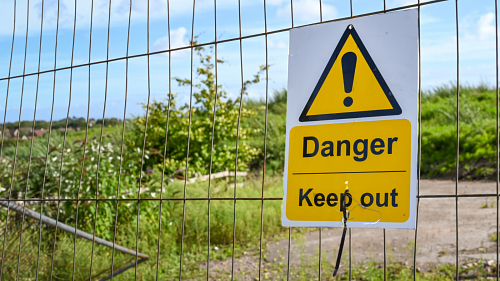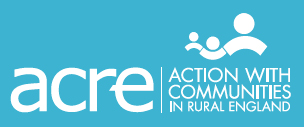Make it easier for rural communities to buy disused public land and property so villages can thrive, says national rural charity
Action with Communities in Rural England (ACRE) has responded to the Government’s consultation on a proposed ‘Right to Regenerate’, recommending measures to make it simpler for residents to acquire under-used land for community benefit.
Across the country many rural communities have stepped up to provide affordable housing, community shops and pubs, village halls and community open space. But being able to do so often requires the purchase of land and buildings at prices low enough to deliver projects such as these for the benefit of everyone locally.
Through its response to the Government’s consultation on the Right to Regenerate, ACRE has asked Government to make it easier for rural communities to buy under used land and property and bring it back into uses that will help their village thrive. You can read our response here.

Currently, finding a suitable site is one of the main barriers to communities being able to meet these ambitions. Too often rural communities identify a site, only to find themselves outbid when it comes up for sale – even on land owned by a local authority. Rather than a much-needed community shop or some affordable homes, the land is developed for private housing or some other commercial use.
Experience shows what can be achieved when a local authority is willing to sell land and buildings at a price that reflects the use the community wants to make of it. Take for example, Lavenham Community Land Trust. They were able to purchase a redundant county council depot site which they turned into 18 new energy efficient affordable homes.
To open similar opportunities to more communities, ACRE has welcomed the proposed Right to Regenerate, but called for stronger measures to ensure rural communities benefit from disposal of local authority land and property. Based on its experience of supporting rural communities with use of existing community rights such as Assets of Community Value, the Right to Bid and Community Right to Build the charity calls for:
- An onus to be on all public bodies to publish freely their land and property holdings and intentions for their future use, starting with those that are currently unused or under used
- A simplified process for registering unused and underused land, with full community engagement to ensure the new use of the site maximises the social value to everyone locally
- Sites sold at a price that makes it viable to achieve the intended social value
- A Right of First Refusal for the community to purchase the site, with a 12-month period to set up a legal community body, gain commitment to fund 75% of the cost of providing the community venture, underpinned by a viable business plan
Jo Lavis, ACRE’s Housing and Planning Policy Advisor said, “These changes would represent a good start, but we think the government could go even further by placing the same requirements on the disposal of all public land, including that owned by its departments and their agencies. We would also like to see this extended to under and unused private land, with covenants in the deed of sale to give confidence to the landowner that the land will only ever be used to provide community benefits.”
ACRE worked with Plunkett Foundation and the National Community Land Trust in preparing the response as organisations that share common purpose of supporting community-led rural projects requiring the use of land and buildings.
The Government’s consultation on the Right to Regenerate closes on 20th March.
ENDS


